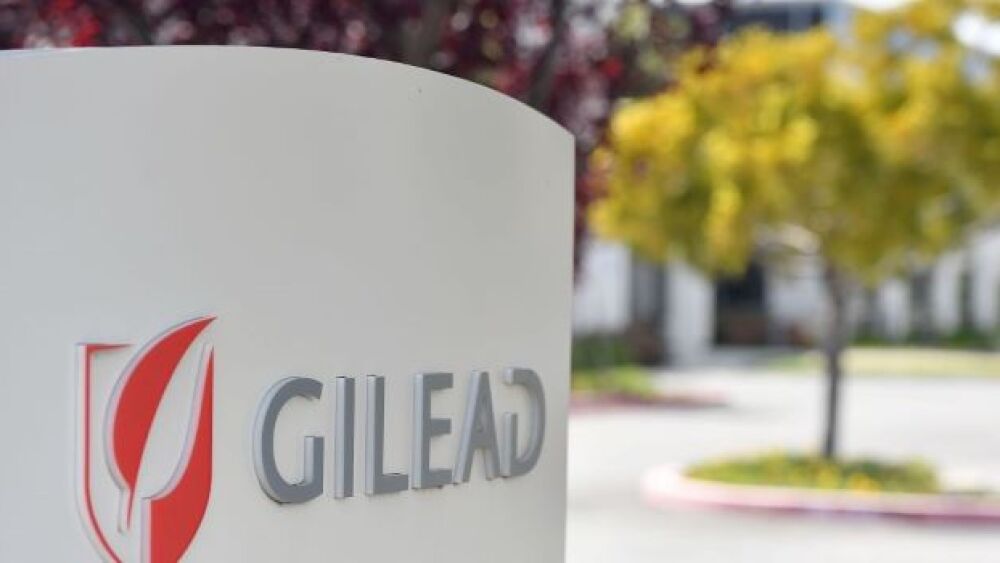Arcus Biosciences and its collaboration partner Gilead Sciences announced during Arcus’ third-quarter report that the company had modified its ARC-10 Phase III trial.
Josh Edelson/AFP via Getty Images
Arcus Biosciences announced during its third-quarter report Wednesday that it plans to modify its ARC-10 Phase III trial that is run in collaboration with its partner, Gilead Sciences.
The study is evaluating domvanalimab and zimberelimab versus Merck’s checkpoint inhibitor Keytruda (pembrolizumab) in locally advanced or metastatic non-small cell lung cancer (NSCLC) and now, it will no longer include a chemotherapy arm.
Holli Kolkey, vice president of corporate communications at Arcus, told BioSpace the amendment “significantly simplifies the study design” by reducing the number of arms from three to two, although the trial size will stay about the same, including 600 patients.
She added that eliminating the chemotherapy arm and including the Keytruda arm as the active comparator allowed site activation in the U.S. and Western Europe that were previously excluded from the trial based on SOC.
“By comparing the domvanalimab plus zimberelimab regimen to Keytruda, the current standard of care in this setting, we believe the study may support a competitive label if approved,” Kolkey said. “It is important to note that all four of our ongoing Phase III studies with a domvanalimab-based regimen compare against the standard of care in that setting.”
Keytruda is the global standard-of-care in PD-L1-high NSCLC. The earlier trial design had three arms, comparing domvanalimab plus zimberelimab to zimberelimab alone and zimberelimab to chemotherapy.
In addition, Arcus stated that eliminating the chemotherapy arm and including the Keytruda arm as the active comparator allowed site activation in the U.S. and other countries that were previously excluded from the trial based on SOC.
Gilead and Arcus signed a 10-year collaboration pact in May 2020. That deal granted Gilead immediate rights to zimberelimab and the right to enter into any other Arcus programs that came up during the terms of the partnership.
In Nov. 2021, the companies amended the collaboration related to Gilead’s option exercise for three of Arcus’s then-clinical stage programs. The opt-in payments for all the programs are $150 million per program.
The two companies inked a stock purchase deal in which Gilead invested $200 million in Arcus shares. That deal was amended in Feb. 2021 related to Gilead investing another $220 million, increasing its equity stake in Arcus from 13% to 19.5%.
More Arcus-Gilead Pipeline Updates
In addition to domvanalimab, an Fc-silent anti-TIGIT antibody and zimberelimab, an anti-PD1 antibody, Arcus and Gilead are developing quemliclustat, a small molecule CD73 inhibitor, etrumadenant, a dual adenosine A2a/A2b receptor antagonist, and one other compound.
The company continues “to have strong conviction that domvanalimab plus zimberelimab has the potential to be a best-in-class anti-TIGIT / anti-PD-(L)1 regimen and to create a new standard-of-care in multiple settings,” Terry Rosen, Ph.D., CEO of Arcus, said.
In the third quarter, the two companies launched three new combination studies involving domvanalimab and completed enrollment in the Phase II ARC-7 study of zimberelimab in NSCLC.
The companies expect numerous readouts, including a fourth interim analysis and topline data disclosure for ARC-7 in the fourth quarter. They also expect the randomized cohort of ARC-6, evaluating etrumadenant plus zimberelimab and docetaxel versus docetaxel in second-line metastatic castrate-resistant prostate cancer.
In the first half of 2023, the companies anticipate data from ARC-9, a Phase Ib/II trial of etrumadenant-based combinations in second-line and third-line metastatic colorectal cancer.
They are also looking forward to progression-free survival and overall survival data in the first half of 2023 from the ARC-8 trial of quemliclustat plus chemotherapy with or without zimberelimab in first-line pancreatic cancer and plan to launch a Phase II EDGE-Lung trial of domvanalimab-, quemliclustat-, and zimberelimab-based combinations in advanced NSCLC by the end of this year.
“With $1.2 billion and a deep pipeline of six, soon to be eight, clinical-stage molecules, we are poised to be a leader in the development of innovative therapies for cancer patients in need,” Rosen noted.





